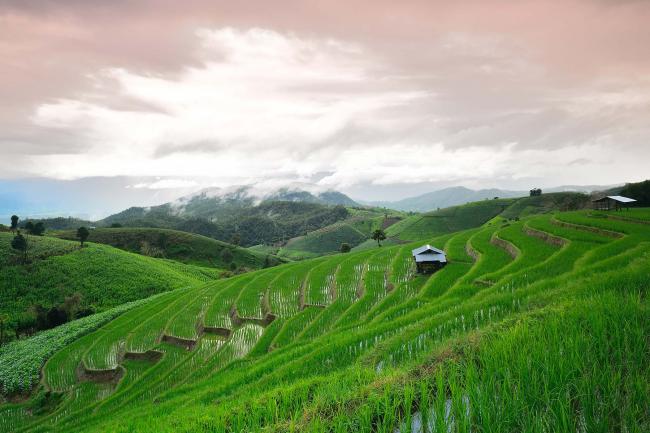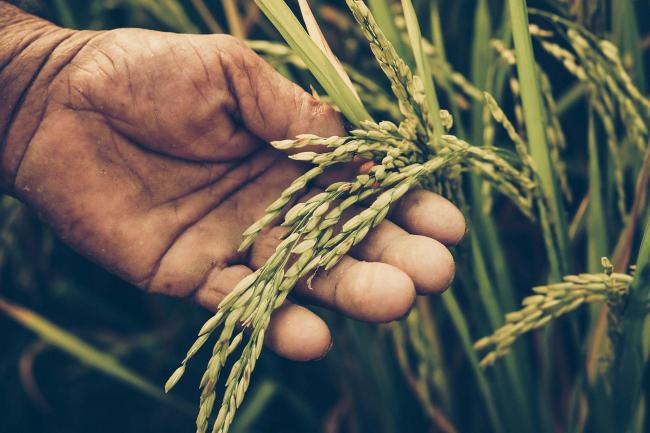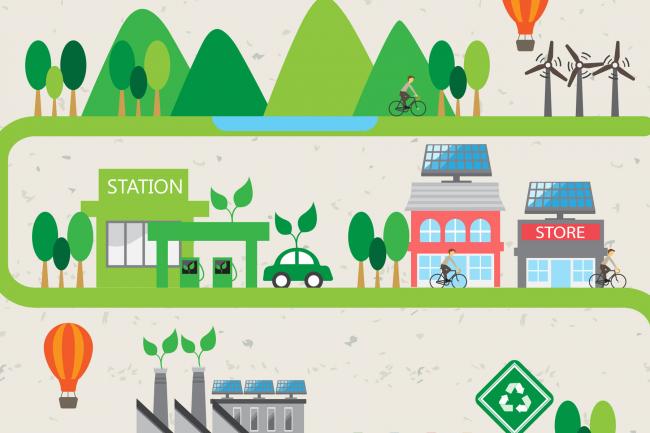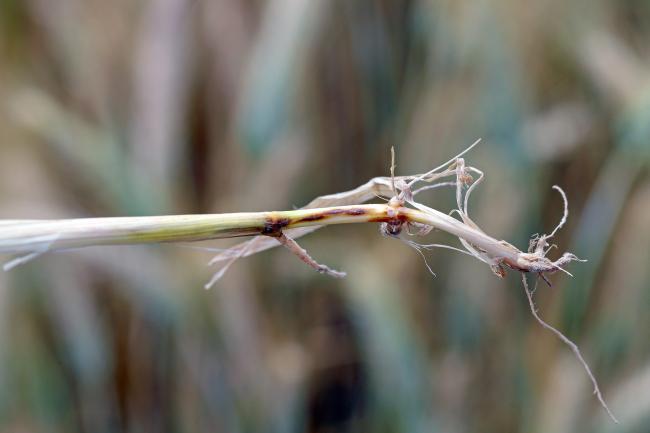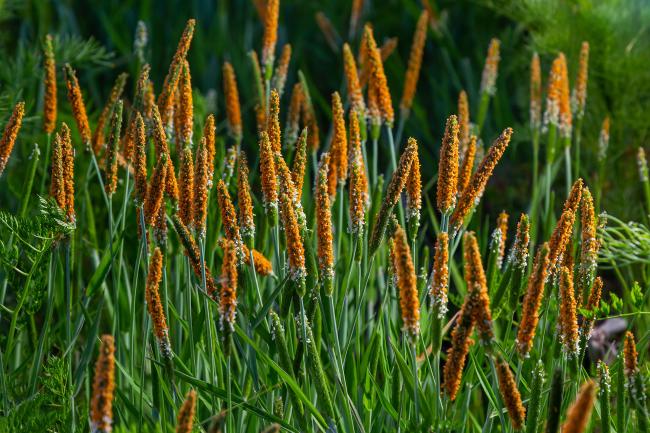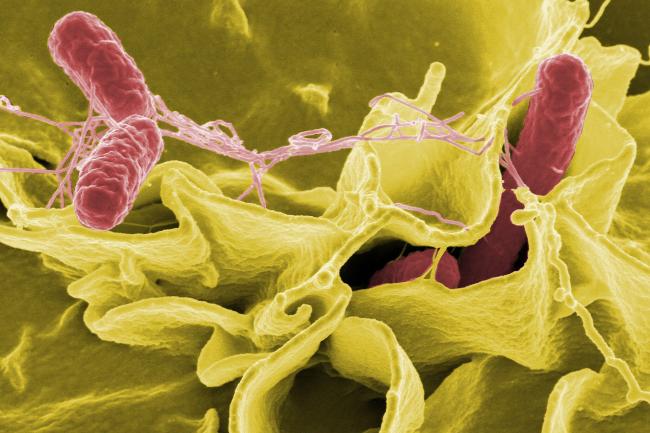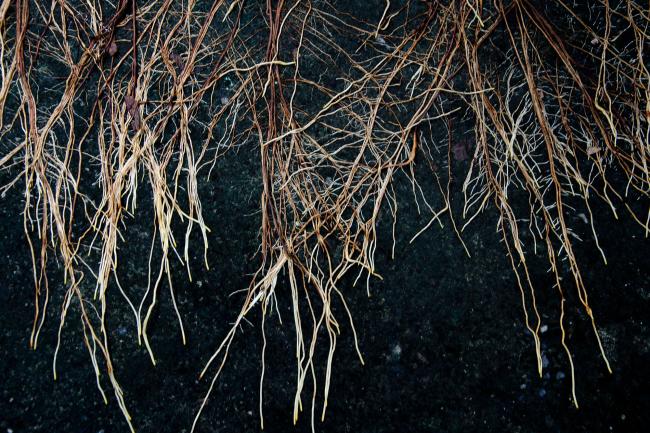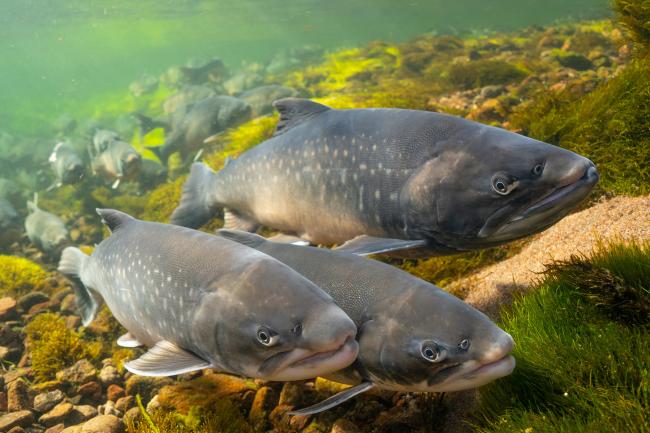Earlham Institute researchers are part of an international collaboration with genebanks and rice breeders in Vietnam - championed by the International Rice Research Institute (IRRI) to help abolish world poverty and hunger - aiming to identify varieties that can survive an increasingly unpredictable climate.
The new genomic data they have generated will significantly support efforts to breed resilient rice crops for optimum global production.
The unparalleled geography and history of Vietnam, together with its diverse range of ecosystems and latitudinal range, means it has been blessed with a vast diversity of rice landraces.
Rice production in Vietnam is of enormous value, both as an export commodity and a daily food staple for the more than 96 million people who live there. An important part of diets worldwide, rice is a healthy, versatile and cheap carbohydrate. However, climate change is threatening its wide availability, with the country’s unique geography and environments putting Vietnam at particular risk.
Critically, it is the world’s poorest that are most dependent on this crop, who are also under the most threat from climate change - amplified by the COVID-19 pandemic disrupting food and nutrition security for billions of people.
Green super rice
To fully understand the uniqueness and potential of this native crop diversity, the research team analysed 672 Vietnamese rice genomes; 616 that were newly sequenced, which encompass the range of rice varieties grown in the diverse ecosystems found throughout Vietnam.
The team of scientists discovered a previously overlooked ‘I5 Indica’ large rice subpopulation in some regions of Vietnam, which had not been used before to produce the more common elite rice varieties resulting from previous rice improvement studies.
These locally adapted rice varieties provide a potential source of novel genes that carry important agronomic traits, which can potentially be leveraged by future rice breeding programmes.
This will help with a new generation of ‘Green Super Rice’, designed to lower production input while enhancing nutritional content and suitability for growing on marginal lands - resulting in a sustainable and resilient rice to better withstand extreme weather conditions.
First author Dr Janet Higgins at the Earlham Institute, said: “Vietnam has a rich history in rice breeding, especially at the local level. The adaptation to multiple environmental conditions and regional preferences has created a wide range of varieties.
“Studies like this suggest that this diversity constitutes a largely untapped and highly valuable genetic resource for local and international breeding programmes.”
To understand how rice diversity within Vietnam relates to worldwide varieties, the team analysed nine landrace subpopulations that were likely adapted to the demands in the different regions of origin.
They then compared this new data to the previous global study on rice diversity in Asia, consisting of fifteen worldwide Asian subpopulations (from 89 countries) in the publicly available ‘3000 Rice Genomes Project’. From this, the Earlham Institute researchers discovered how the new rice varieties native to Vietnam were related to the global Asian data set - leading to the I5 Indica subpopulation finding.
Sustainable rice breeding
This genetic diversity is a highly valuable resource when the highest rice production areas in the low-lying Mekong and Red River Deltas are enduring increasing threats from climate changes - unpredictable weather patterns, increasing sea levels causing overflow of salt water, and consequential drought in the upland areas.
Dr Higgins, explains: “Improved varieties, which are high yielding but can also be grown sustainably, are needed to ensure we can continue to meet the worldwide demand for rice. Salt and drought tolerance are related critical traits which need to be addressed in order to secure future rice production.
“This requires agronomic, smart crop management practices and genomic solutions to stop the vicious cycle of rice contributing to global warming due to greenhouse gas emissions from crop fields, and areas of production being threatened by climate change.
“We are now analysing the Indica I5 subpopulation in further detail. We hope to try and detect regions of the genome which have been selected in the Indica I5 subpopulation and relate these to traits of interest for sustainable rice crops.
“It would be fantastic if the IRRI were in a position to incorporate some of the Indica I5 varieties from Vietnam we describe in our study in their future breeding programmes. We believe this new data will massively help optimise sustainable rice production for global demand while protecting our planet.”
The paper ‘Resequencing of 672 Native Rice Accessions to Explore Genetic Diversity and Trait Associations in Vietnam’ is published in the journal Rice.
This work was supported by the Biotechnology and Biological Sciences Research Council (BBSRC) through the grants BB/N013735/1 (Newton Fund) and BBS/E/T/000PR9818, and the Newton Fund Institutional Links (Project 172732508), which is managed by the British Council.
Above Pictures Credit: ©2014CIAT/GeorginaSmith



